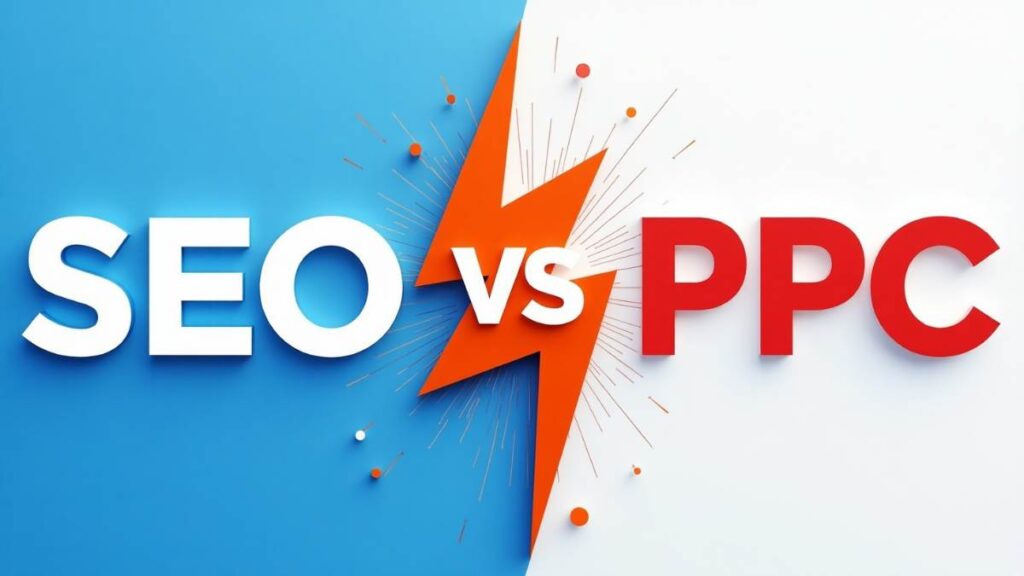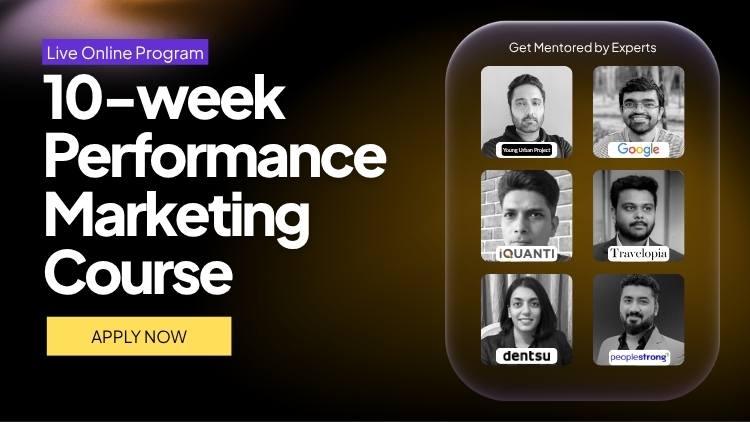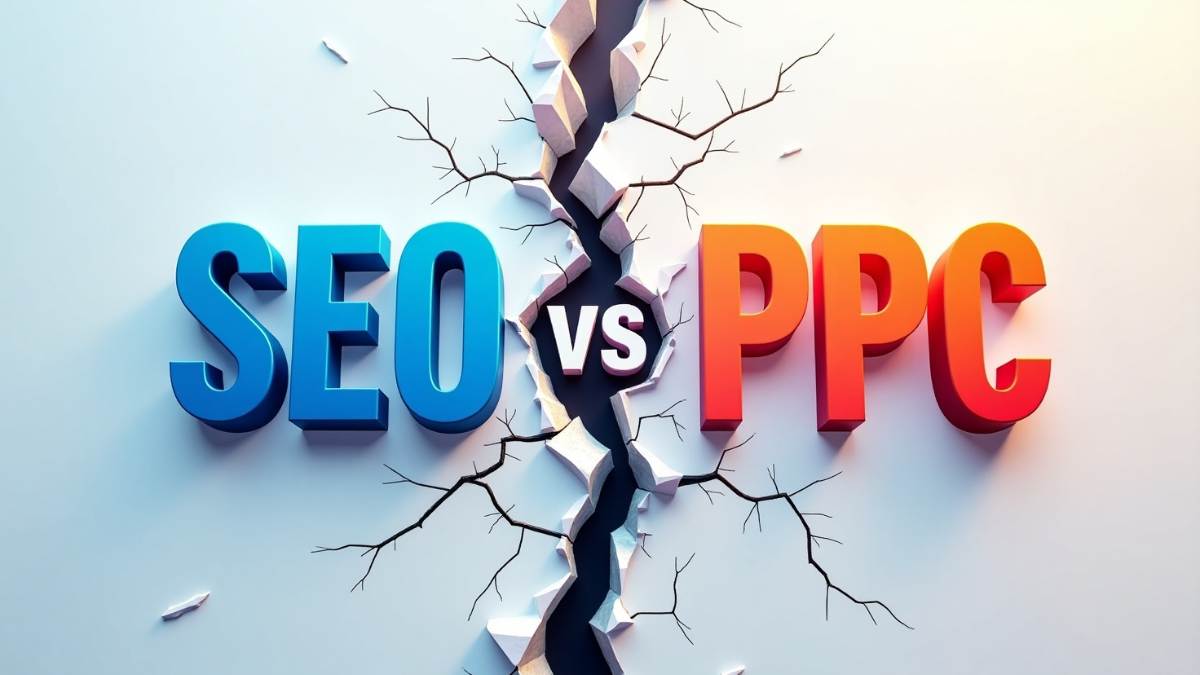In digital marketing, one of the most common debates you’ll come across is SEO vs PPC. Marketers, founders, and even clients constantly ask: “Should we focus on SEO or run PPC ads?” The answer? It depends – and that’s exactly what this blog will unpack.
As we step into 2025, the digital ecosystem has evolved. AI tools are reshaping how content is created. Consumer behavior has shifted toward mobile and voice search. Ad costs are rising. Amid all this, knowing whether to invest in SEO or PPC (or both) can be the difference between scaling profitably or wasting budget.
Let’s bust a few myths right out of the gate:
- “SEO is free.” (It’s not – it takes time, tools, and people.)
- “PPC guarantees sales.” (It doesn’t – bad ads still fail.)
- “One is better than the other.” (Actually, they serve different goals.)
Let’s break them down, piece by piece.
Table of Contents
What is SEO? (Search Engine Optimization)
Search Engine Optimization (SEO) is the process of improving your website’s visibility in search engine results without paying for clicks.
How SEO Works
There are three main components:
- On-Page SEO: Keywords, meta tags, internal linking, content optimization
- Off-Page SEO: Backlinks, social signals, brand mentions
- Technical SEO: Site speed, mobile-friendliness, structured data
What Does Organic Ranking Mean?
When someone Googles “best running shoes” and clicks on your blog that ranks #2 – that’s an organic click. No ad cost. Just visibility earned through relevance and authority.
Benefits of SEO
- Long-term visibility and traffic
- Builds brand authority and trust
- Higher click-through rate (CTR) on many keywords
- Cost-effective over time
Also Read: Advantages and Disadvantages of SEO
Limitations of SEO
- Results are slow (can take 3–6 months)
- Requires ongoing content and tech efforts
- Algorithm updates can impact rankings
- Competitive niches can be brutally hard
Also Read: Types of SEO
What is PPC? (Pay-Per-Click Advertising)
PPC is a paid advertising model where you pay every time someone clicks on your ad – most commonly seen with Google Ads, Bing Ads, and display or shopping ads.
How PPC Works
You bid on keywords. If your bid + ad quality wins, your ad appears in the search results. You only pay when someone clicks.
Popular Types of PPC:
- Search ads (text ads in Google search results)
- Display ads (banner ads on websites)
- Shopping ads (for eCommerce)
- Video ads (YouTube pre-roll)
- Retargeting ads
Benefits of PPC
- Instant traffic and visibility
- Highly measurable performance
- Laser targeting by location, device, time, intent
- Scalable based on budget
Limitations of PPC
- You pay for every click – even if it doesn’t convert
- Can become expensive in competitive industries
- Performance drops when budget stops
- Constant optimization needed to stay profitable
Also Read: What is PPC in Digital Marketing
SEO vs PPC: Key Differences Broken Down

| Factor | SEO (Search Engine Optimization) | PPC (Pay-Per-Click Advertising) |
| 1. Cost Structure | No direct cost per click. Investment in content, SEO tools, and time. | Pay for each click. Budget needed daily/monthly. Costs vary by keyword competition. |
| 2. Time to Results | Slow. Typically 3–6 months to see meaningful traffic. | Immediate. Ads can generate traffic as soon as they’re live. |
| 3. Click-Through Rate (CTR) | Generally higher CTR on informational searches. Builds user trust over time. | Lower CTR for some queries due to “ad blindness,” but strong for commercial terms. |
| 4. Longevity & Sustainability | Long-lasting results. Evergreen content continues to attract traffic for years. | Temporary. Traffic stops the moment you pause the campaign. No residual benefit. |
| 5. Conversion Rates & Buying Intent | Captures users across the funnel (awareness, interest, intent). | Best for high-intent, bottom-of-funnel buyers ready to take action. |
| 6. Targeting Options | Limited targeting, mainly keyword- and content-driven. Broader reach. | Advanced targeting by device, time, location, audience behavior, etc. |
| 7. Brand Trust & Perception | Organic results are seen as more trustworthy and authoritative. | May be seen as “pushy” or purely sales-driven, especially on mobile. |
| 8. Analytics & Measurability | Harder to track direct ROI. Attribution may be multi-touch and long-term. | Highly measurable. Clear tracking of impressions, clicks, conversions, and CPA. |
| 9. Placement on SERP | Appears below the paid ads, often in the middle or bottom of the page. | Top of the page. Premium visibility, especially on mobile. |
| 10. Maintenance & Optimization | Requires ongoing content updates, backlink efforts, and site audits. | Requires frequent bid management, A/B testing, ad copy refreshes. |

Enroll Now: AI-Powered Performance Marketing Course
SEO or PPC: When to Choose What?
Use SEO When:
- You’re building long-term visibility
- Budget is tight but time is available
- You want to be seen as a thought leader
- Target audience does a lot of informational searching
Use PPC When:
- You want fast results (launch, sale, event)
- You’re targeting high-intent transactional keywords
- You’re in a competitive industry and need visibility now
- You have a solid landing page and offer
Budget-Based Decision:
- Low budget, long-term view = SEO
- Higher budget, immediate ROI = PPC
Funnel Stage Alignment:
| Funnel Stage | Best Strategy |
| Awareness | SEO |
| Consideration | SEO + Retargeting Ads |
| Purchase | PPC |
Can SEO and PPC Work Together?
Absolutely – some of the best-performing digital strategies use both in tandem.
Benefits of Combining:
- Double your SERP real estate
- Use PPC data to inform SEO keyword strategy
- Retarget SEO visitors using PPC
- Run PPC for high-ROI keywords while SEO builds
Example:
An eCommerce store might:
- Rank blog posts organically for “how to choose running shoes”
- Retarget those readers with PPC ads for actual shoes
Real-World Examples: SEO vs PPC in Action
Brand #1: Ahrefs (SaaS)
- SEO-Driven: Massive traffic via blogging + YouTube
- Organic leads are nurtured over time
- PPC is used sparingly for brand terms
Brand #2: Decathlon (eCommerce)
- PPC-Heavy: Google Shopping ads for product discovery
- Retargeting ads on Meta
- SEO supports through content hubs and FAQs
Common Mistakes When Choosing Between SEO and PPC
- Ignoring the customer journey: Not every click is ready to buy
- Expecting instant SEO results: It’s a long game
- Stopping PPC too early: Test enough data first
- Focusing only on short-term wins: Long-term visibility matters
- No conversion tracking: You can’t optimize what you don’t measure
Final Verdict: Which One Is Right for You?
There’s no one-size-fits-all. It comes down to your:
- Goals
- Timeline
- Budget
- Industry competitiveness
- Funnel strategy
Quick Decision Checklist:
- Do you need fast traffic? → Start with PPC
- Do you want sustainable visibility? → Invest in SEO
- Is your budget flexible? → Use both
- Can you wait 3–6 months? → SEO is great
- Is your offer time-sensitive? → PPC wins
Also Read: Technical SEO Checklist
FAQs: SEO vs PPC
1. Is SEO better than PPC in the long run?
Yes, if you’re consistent with it. SEO can bring in free traffic for years once your pages rank. But it needs regular content updates and patience. If done right, it’s more cost-effective over time than constantly paying for clicks through PPC.
2. Can I stop PPC once my SEO improves?
You can, but it’s not always smart. PPC offers fast visibility that complements your SEO. Many brands keep both running, SEO for long-term traffic, PPC for immediate conversions or campaigns. It’s often about finding the right balance, not choosing one only.
3. Which is more cost-effective: SEO or PPC?
SEO tends to be more cost-effective long-term, especially if your content keeps ranking. PPC brings quicker results but gets expensive over time. If your budget is limited, SEO may give better ROI, though PPC works well for short-term, high-intent goals.
4. Does SEO affect PPC performance (or vice versa)?
Yes, they influence each other. PPC data can reveal high-performing keywords that help SEO. And good SEO improves your brand’s trust, which can increase PPC ad performance. Running both together can give better visibility and smarter insights from shared analytics.
5. Is PPC worth it for small businesses with low budgets?
It can be, if you’re strategic. Focus on high-intent keywords, retargeting past visitors, or running branded search ads. Avoid broad, expensive campaigns. Even a small PPC budget can work well when you’ve got a clear offer and good targeting setup.
6. How can I measure ROI for SEO vs PPC campaigns?
Track everything. Use Google Analytics for SEO performance and Search Console for keyword data. For PPC, use Google Ads’ built-in conversion tracking. Compare cost vs leads or sales. The key is defining clear goals and measuring outcomes against them regularly

